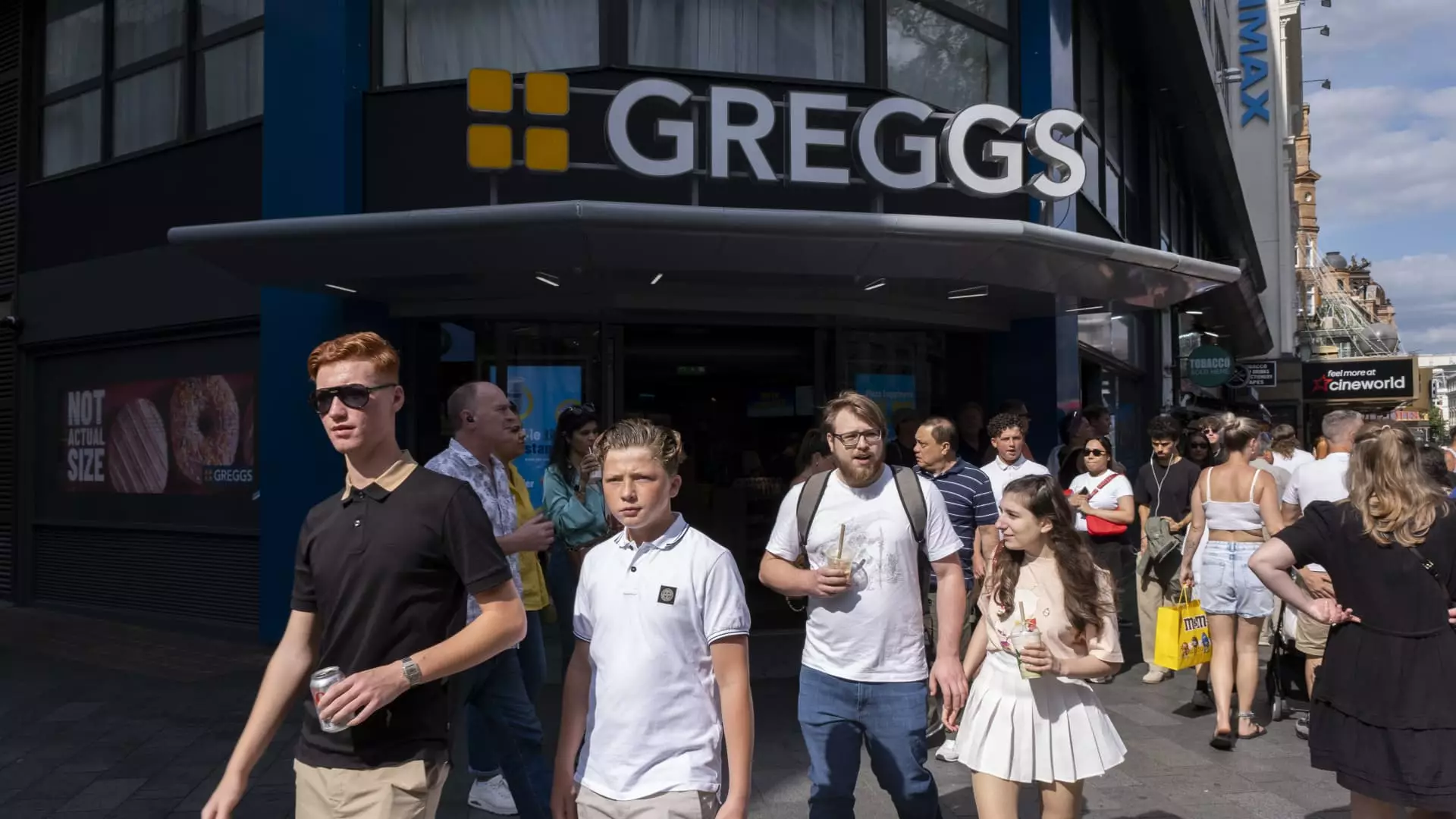The recent heatwave sweeping across the UK has revealed a harsh reality for traditional food service businesses like Greggs. While the company has long relied on the predictability of consumer routines—morning commutes, lunch breaks, and after-work snacks—the soaring temperatures have disrupted these patterns. Unseasonably hot weather, despite traditionally being seen as an advantage for cold drinks and lighter fare, has ironically become a liability for Greggs. The company’s own admission that footfall declined in June illustrates how climate extremes are not just fleeting inconveniences but potent disruptors of established consumer habits. Climate volatility demands a reevaluation of business models—what worked in a moderate climate may no longer hold up against the stark realities of climate change, which increasingly introduces unpredictable patterns influencing daily life and retail traffic.
Consumer Shifts and Economic Strain
Beyond the weather, there is a deeper, more systemic issue at play: economic pressure on consumers. Despite easing inflation, household budgets remain strained, leading to more cautious spending. Greggs, positioned as an affordable, quick-service provider, might face a paradoxical challenge. The brand’s strength has traditionally been its value proposition—delivering tasty, convenient options at accessible prices. However, in a stretched economy, even this appeal can diminish when consumers prioritize essentials over discretionary treats. Variability in spending reveals that convenience alone isn’t sufficient; relevance and adaptability are just as critical. The dip in demand during the heatwave might be less about preferences and more about consumers re-evaluating what’s worth spending on amid economic uncertainty. This shift indicates that brands rooted solely in affordability need to innovate not just their menu but their business philosophy, emphasizing resilience amidst economic turbulence.
Future Prospects and Strategic Dilemmas
While Greggs projects expansion ambitions—aiming for dozens of new outlets this year—the current environment raises questions about the sustainability of such growth. The company’s cautious outlook, suggesting that profits could fall below last year’s levels, underscores the heightened risks it faces. Expansion in a turbulent market requires more than optimism; it demands adaptability and strategic foresight. The recent sales background also challenges Greggs’ traditional positioning; if hot products underperform during a heatwave, perhaps the company must diversify its offerings further, emphasizing seasonal relevance and climate resilience.
Market analysts’ commentary highlights a broader concern—Greggs’ core value of offering convenience and affordability may no longer be enough. Underlying economic pressures, along with climate unpredictability, mean that brands must evolve to stay relevant. The challenge is not solely weather-related; it is about societal resilience and how businesses respond to rapid changes in consumer behavior. The current uncertainties serve as a stark reminder: complacency in a rapidly changing world is the single biggest threat to traditional retail models.

